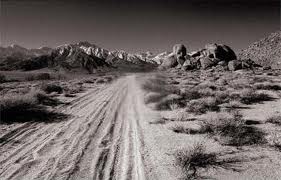Thursday, October 18, 2012
Faith in the Age of Criticism Pt 1
Timothy Dunfield, MA, PhD dropout, gypsy, believer.
In the history of the human race we have had many “Ages”. We have experienced the age of reason, the dark ages, the age of science and progress, the Age of Aquarius, the pre-industrial age, the industrial age, the age of dinosaurs, the ice age, and pre-modern age, the modern age, and the post-modern age. One thing that defined every age (at least the ones mentioned above that were real, and no doubt a few I didn't mention) was an underlying spirit (if “spirit” is in fact the right word) of criticism. If “criticism” is too strong a word, perhaps “questioning” or “evaluating” would also apply. Whatever the word, brilliant men and women evaluated, questioned, and criticized the ideas of previous ages and generations, discarded what no longer applied, what had become outdated or impractical, and then applied new ways of thinking and new ideas to current problems.
Without criticism we would still be rubbing two sticks together to make fire or grinding wheat by hand in a field to make bread or believing the world was flat. Without criticism we may still believe that slavery is acceptable or that women are inferior to men. We live in an age of criticism. We have professional ‘critics’ who make their living criticizing everything from what people wear to what they watch to where they live or who they vote for. Criticism forms the basis for the academic community, yet within many religious circles, criticism is taboo, unless we are criticizing people and theologies we don’t like. Rather than being the enemy, however, criticism can be the greatest friend of the serious student, the serious seeker, the person who will not accept complacency, those who wish to see a better future; but only if we understand what real criticism is and is not.
For far too long, I have listened with growing dismay to Christians (and honestly to most people of any faith) who decry the advent of criticism, who fear any form of criticism directed at their belief system, and who view criticism as somehow “evil” and those who dare to criticize their faith as at best, “deluded” or “lost” and at worst, “agents of evil”. For my own faith tradition, the response to criticism is almost always reactionary, closed-minded, and ungraceful. It is time to change this. I feel this is the result of an unhealthy fear of criticism based on a skewed understanding of the role that criticism plays in the creation, maintenance, and strengthening of faith (this theory formed the basis of my MA thesis at the University of Alberta in 2009). Because this is most likely the outline of a book I’m going to write, I will keep this blog to point form. Each day for the next six days I’m going to write briefly on a different reason why I believe proper criticism is essential to a mature faith, and is also important if we are going to engage with our culture in the “Age of Criticism.”
